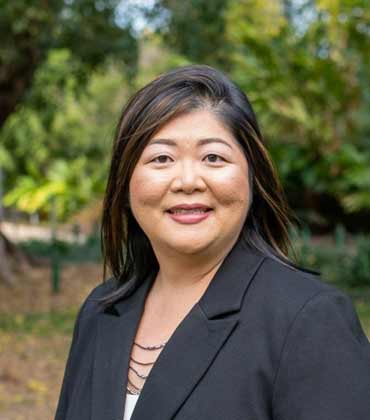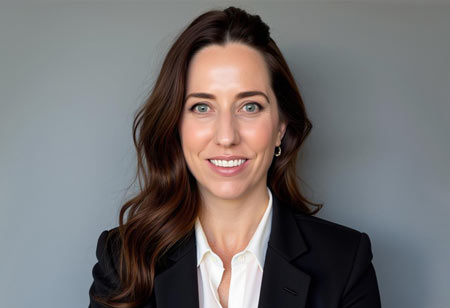THANK YOU FOR SUBSCRIBING
By Mathew Roper, Head of Business Systems, Chatime Australia
Digital Transformation and Growth in the QSR Industry
By Chengboey Lau, Senior Director - Quality Food Safety, AMEA, Kellanova
From Insight to Impact: Committed to Quality Across...
By David Hermann, ANZ Electrical, Instrumentation and Process Automation Manager, Goodman Fielder
Digital Transformation and Industry 4.0 in Manufacturing

Proactive Allergen Management for a Safer, Global Supply Chain
Inggrid Aryal, Oceania Food Safety Manager, Nestlé Oceania

 Inggrid Aryal, Oceania Food Safety Manager, Nestlé Oceania
Inggrid Aryal, Oceania Food Safety Manager, Nestlé OceaniaInggrid Aryal is a dedicated food safety leader at Nestlé Oceania, bringing extensive experience in quality assurance and manufacturing. She spearheads initiatives to enhance food safety standards, training, and hygiene practices across Nestlé’s operations in the Oceania region.
Championing Food Safety across Nestlé Oceania’s Multinational Network
Since 2018, I have been responsible for food safety across ten Nestlé factories in the Oceania region, including three in New Zealand, one in Papua New Guinea, and six in Australia. These facilities make a wide array of products, including food and beverages, pet food, and nutritional supplements under our Health Science division.
One of the key focuses of my role has been building capability and increasing awareness of allergen management in all our food and beverage factories. This is especially critical for our Health Science portfolio, where products are often formulated for consumers with compromised or sensitive immune systems. With allergen controls in pet food manufacturing, we remain vigilant and proactive, regardless that this is not yet regulated.
Navigating Allergen Risk in One of the World’s Most Regulated Markets
One of the biggest challenges we face is ensuring regulatory compliance within a highly complex factory ecosystem. Allergen risk management begins well before raw materials enter our sites. It starts at the supplier level, where detailed allergen risk data is obtained from vendors, and extends through every stage of production, including ingredient processing and final product formulation. Accurate labeling is essential to ensure consumers are fully informed about the products they purchase.
Australia is often considered the “allergen capital of the world” due to its high prevalence of food allergies and its stringent regulatory standards. In recent years, product recalls due to allergen issues have increased, primarily caused by missing or improperly declared allergens. This trend underscores the need for ongoing industry improvement, supported by organizations such as the Allergen Bureau of Australia.
“We focus on building capability and awareness around allergens across Nestlé – Oceania region – food, beverage and pet food factories, as well as within our Health Science division, where products are often developed for consumers with vulnerable immune systems.”
We must remain committed to continuous improvement in this area, particularly as food sensitivities become increasingly prevalent. An added layer of complexity comes from Nestlé’s global footprint—we import and export products across countries that recognize different allergens and follow varying regulations. Harmonizing compliance across international borders remains an ongoing challenge.
Empowering Teams through Role-Specific Food Safety Training
At Nestlé, food safety and allergen management training extends beyond our quality assurance (QA) teams. We train our entire factory workforce, tailoring content to the specific responsibilities of each role rather than using a one-size-fitsall approach.
For example, engineers are trained to understand allergen risks related to equipment maintenance and servicing, while production operators receive targeted training on managing allergens during dosing, tipping, and filling operations. We’ve also introduced specialized training for our Research & Development (R&D) teams to help them consider allergen risks during recipe development and to assess whether existing production lines can safely support new formulations. Procurement staff are trained to ask the right questions about allergen risks when sourcing raw materials. This role-specific training model enhances allergen awareness throughout the value chain, helping to prevent issues before products reach the consumer.
Harnessing Digital Innovation to Strengthen Allergen Management
Nestlé is rolling out a worldwide digital transformation of its Hazard Analysis Critical Control Point (HACCP) systems to enhance food safety management.
We are building a fully integrated, data-driven platform that connects our process end to end – from raw materials receival to our fill and pack lines. The new platform will create greater visibility of food safety hazard including allergen hazard. This will enable factory teams to act with greater precision based on real-time risk insight – reflecting significant improvements in our systems. Whether executing optimized cleaning protocols or ensuring accurate product labelling, they’re empowered to respond with greater speed and confidence.
A Guiding Principle for Food Safety Professionals
When I joined Nestlé Oceania, the most valuable advice I received from my manager was simple, “Go to the lines. Talk to the operators. Understand the process.” This hands-on approach became the cornerstone of my career in food safety. You cannot effectively manage food safety risk without first understanding the manufacturing process.
My advice to all food safety professionals is this: Invest time in learning how products are made across your company’s value chain. A deep understanding of operational processes is the foundation for effectively managing food safety and allergen risk.
Read Also















